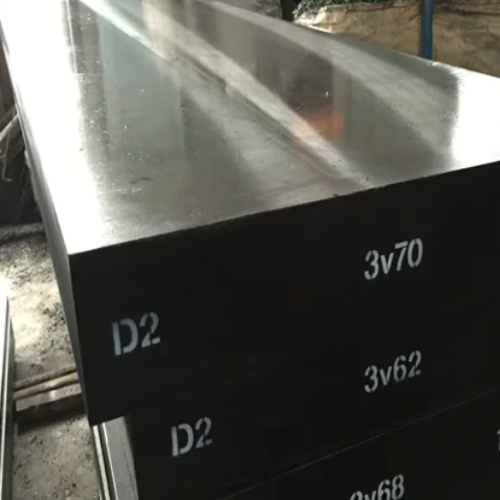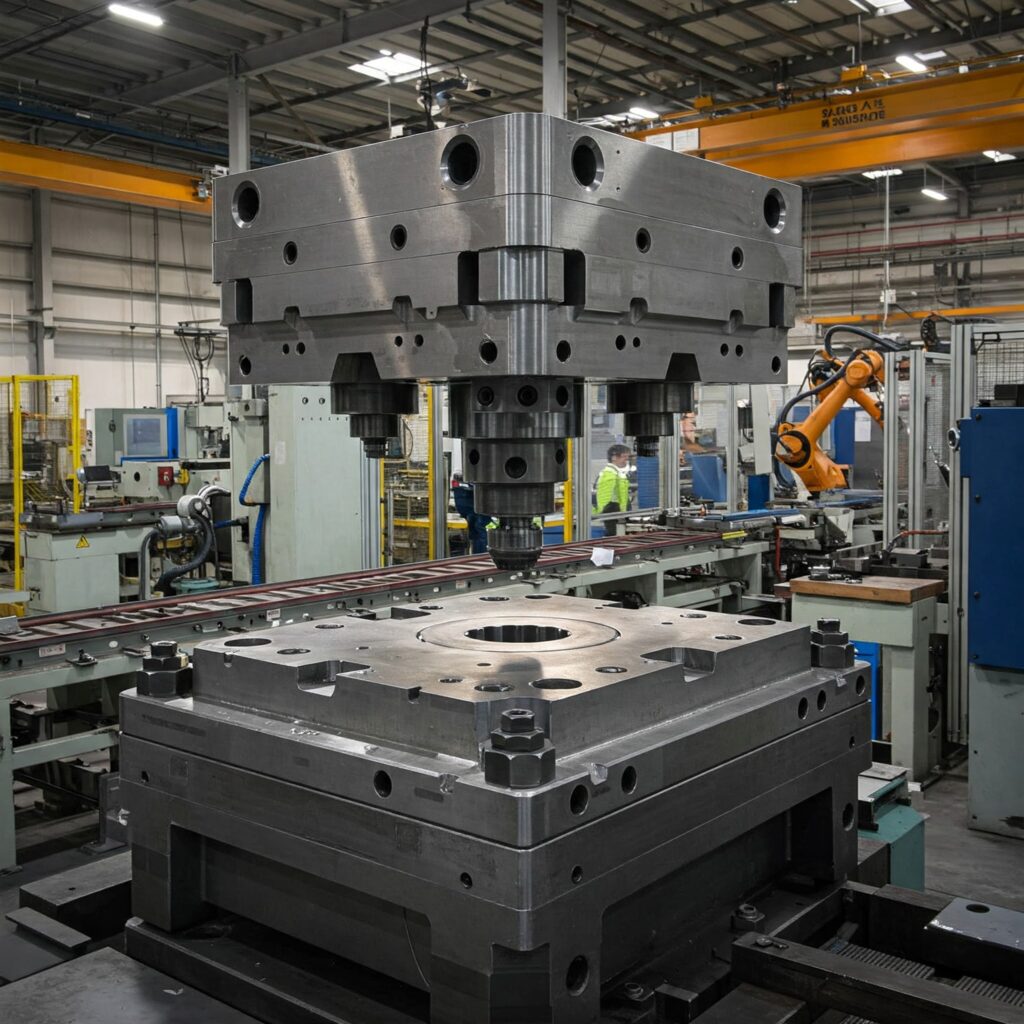Is D2 tool steel good for blades? Yes, D2 tool steel makes a great blade, if you need extreme wear resistance above all else. Think high-volume industrial cutting, shearing, and trimming. But if your blade takes a beating or needs to resist chipping, D2 might not be your best bet due to its lower toughness.

What Exactly is D2 Tool Steel?
We handle a lot of D2 here at Aobo Steel, so let me give you the rundown based on our 20+ years in the business. D2 is a tool steel known for its high carbon and high chromium content (around 1.5% carbon, 12% chromium). This specific recipe creates very hard chromium carbides throughout the steel.
What Makes D2 Stand Out?
- Top-Tier Wear Resistance: This is D2’s claim to fame. Those hard carbides make it incredibly tough against abrasion. It often serves as the benchmark other steels are measured against for wear.
- Air Hardening: D2 hardens well by cooling in air after heat treatment. This is a plus because it minimizes the warping or distortion with steels needing oil or water quenching. Good dimensional stability is vital for precision tools.
- Gets Very Hard: It can be hardened significantly (often in the 56-63 HRC range), which helps it hold an edge and resist wear.
Best Uses for D2 Blades in Industry
Where does D2 really shine for blades? In demanding factory environments:
Shearing Operations
For cutting sheet materials, especially in long production runs or with abrasive stock, D2 shear blades last. Their wear resistance means extended life and less downtime.
Trimming Tools
D2 provides excellent longevity in processes like trimming forged parts because it resists wear so well. It’s a common choice for both cold and hot trimming dies.
Cropping Applications
D2 is also a solid choice for cropping blades where durability against abrasive wear is needed.
Basically, if the main challenge for your industrial blade is simply wearing out from friction and abrasion during heavy use, D2 is often the go-to material.
The Catch: D2 Isn’t the Toughest Steel
Every steel has trade-offs. D2’s high wear resistance comes at the cost of toughness.
What is Toughness?
Toughness is about a steel’s ability to handle impact without fracturing. Think of shocks, sudden loads, or situations where chipping is a risk.
D2’s Toughness Compared
Compared to steels like A2 or S7, D2 is less tough. It’s more brittle. This means in applications with heavy impacts or where the blade edge might get slammed, D2 is more likely to chip or break than a tougher steel.
Trying to make D2 significantly tougher by altering its heat treatment usually isn’t very effective. If you need substantially more toughness, you’re generally better off choosing a different steel grade designed for that property.
Other Points to Keep in Mind
- Rust Resistance: It has decent corrosion resistance thanks to the chromium, certainly better than basic carbon steels, but it’s not stainless steel. It can still rust if not cared for, especially in damp environments.
- Working with D2: Be aware that D2 is tougher to machine and grind than simpler steels. Its hardness and those carbides make it challenging.
- Heat Treatment Matters: Getting the heat treatment right is crucial to balance D2’s properties for your specific blade needs.
Final Thoughts
So, is D2 good for blades? Absolutely, for the right kind of blade. If you need maximum life in high-wear industrial cutting like shearing or trimming, D2 is a fantastic, cost-effective choice. But if toughness – the ability to withstand impacts and resist chipping – is your main concern, you should look at other options like A2, S7, or specialized tougher grades.
Choosing the right steel is critical. At Aobo Steel, we help customers navigate these choices every day. Let us know if you need assistance figuring out the best fit for your application.


